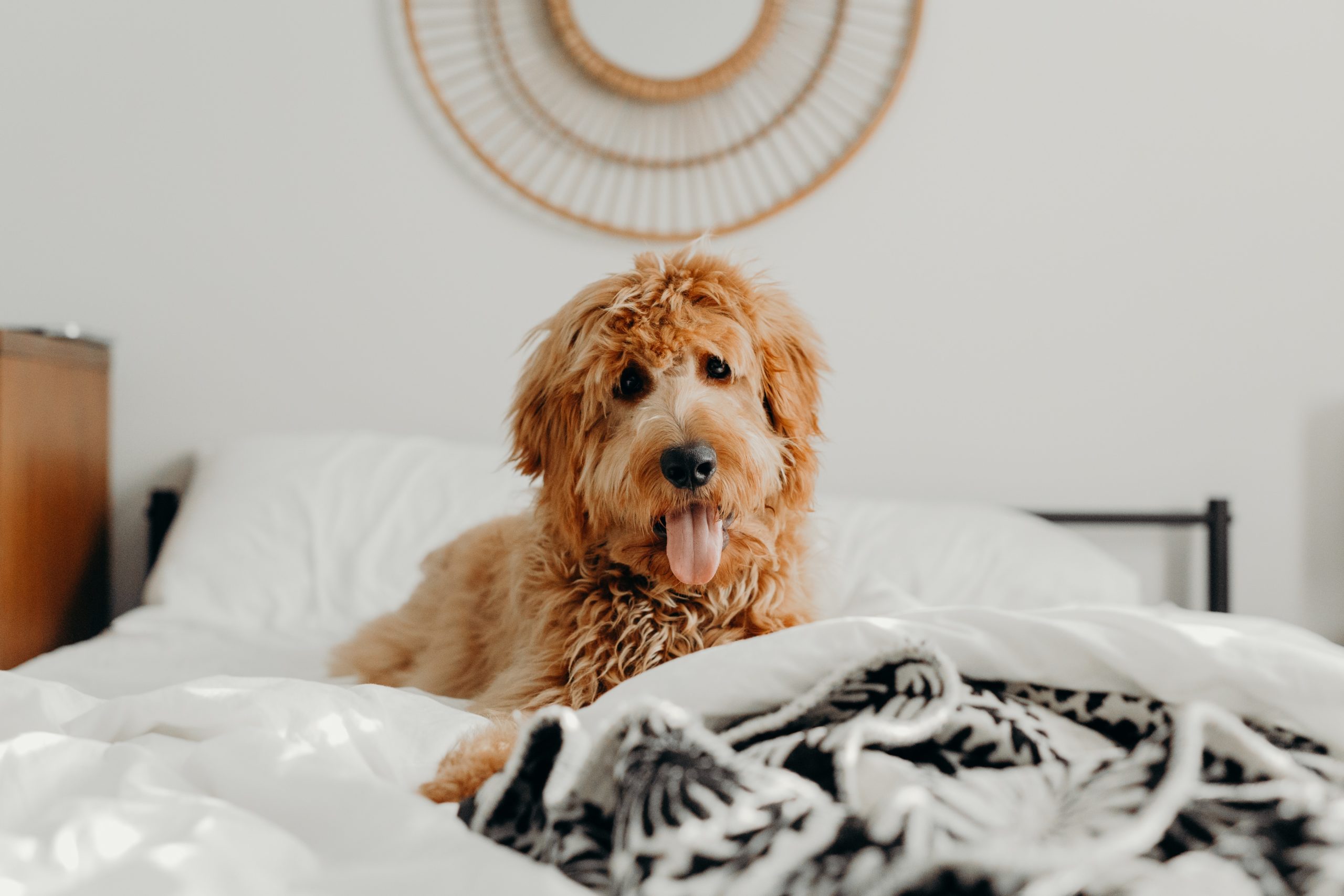Do you co-sleep with your pet? Are they consistently drooling on your pillow or snoring in your ear? Although one of the many benefits of owning a pet is having a built-in cuddle companion, there may be such a thing as too much cuddling. A good night’s sleep might be one thing people love as much as they love their pets, making it a tough decision whether or not to let your furry friend in bed with you. Co-sleeping is different for everyone, with both perks and risks to consider.
Sleeping with your pet
When you co-sleep with your pet, a regular concern is that you are compromising your comfort and sleeping patterns. However, according to an experiment done by the Mayo Clinic, assessing whether having a pet in bed disrupts sleep, it had little effect. Both humans and pets were attached to accelerometers, devices used to track their movement and sleep patterns, through the night for seven nights. The results showed that humans still had 81% sleep efficiency and the pets had 85%, where 80% is generally considered satisfactory.
These results could be due to the many mental health benefits associated with the presence of animals. According to Dr. Rachel Cannon Ghulamani, a local licensed medical health counselor, having an animal around can reduce stress and anxiety, both of which are linked to insomnia. Pets also create a sense of security for people who may be nervous or sleeping alone.
“It follows a similar pattern to attachment; having a pet is having someone you love and are attached to,” said Ghulamani, “having them by your side releases oxytocin, a hormone that makes you feel good and safe, and is linked to better sleep.”
Ghulamani says that if you’re still getting efficient sleep, the overall positive psychological benefits can be huge.
Dr. Lance Baltzley, a veterinary physician at Newberry Animal Hospital, suspects this is a two-way street. When you co-sleep with your pet, you also experience the psychological benefits experienced by humans. “There are no negative effects for the animals. Cats and dogs are traditionally pack animals, it creates a better bond,” said Baltzley.
However, Baltzley advises putting your health as the priority, and stresses that it is essential for those wanting to share a bed with their cat or dog to make sure that they get good comprehensive veterinary care, so no communal diseases can be spread.
Making sure the pets are in as good of health condition as the humans eliminates this concern one way or the other.
Are You A Light Sleeper?
For those who are light sleepers, the interruption of sleep could be also be detrimental to health. In his case, Baltzley recommends giving pets their own space at night.
“Your animal will be okay as long as there is consistency. Have a nice place for them to sleep and have a routine. They will acclimate well to their own environment, and although they may want to get in bed with you, they won’t be under emotional duress going to their own bed, as long as they feel secure,” said Baltzley.
When it comes to bedtime, it’s okay to be selfish. If you choose to let your four-legged friend tag along, it can be a great bonding time. The best sleeping environment is one that works for both the animal and the human, where everyone is happy and healthy.

